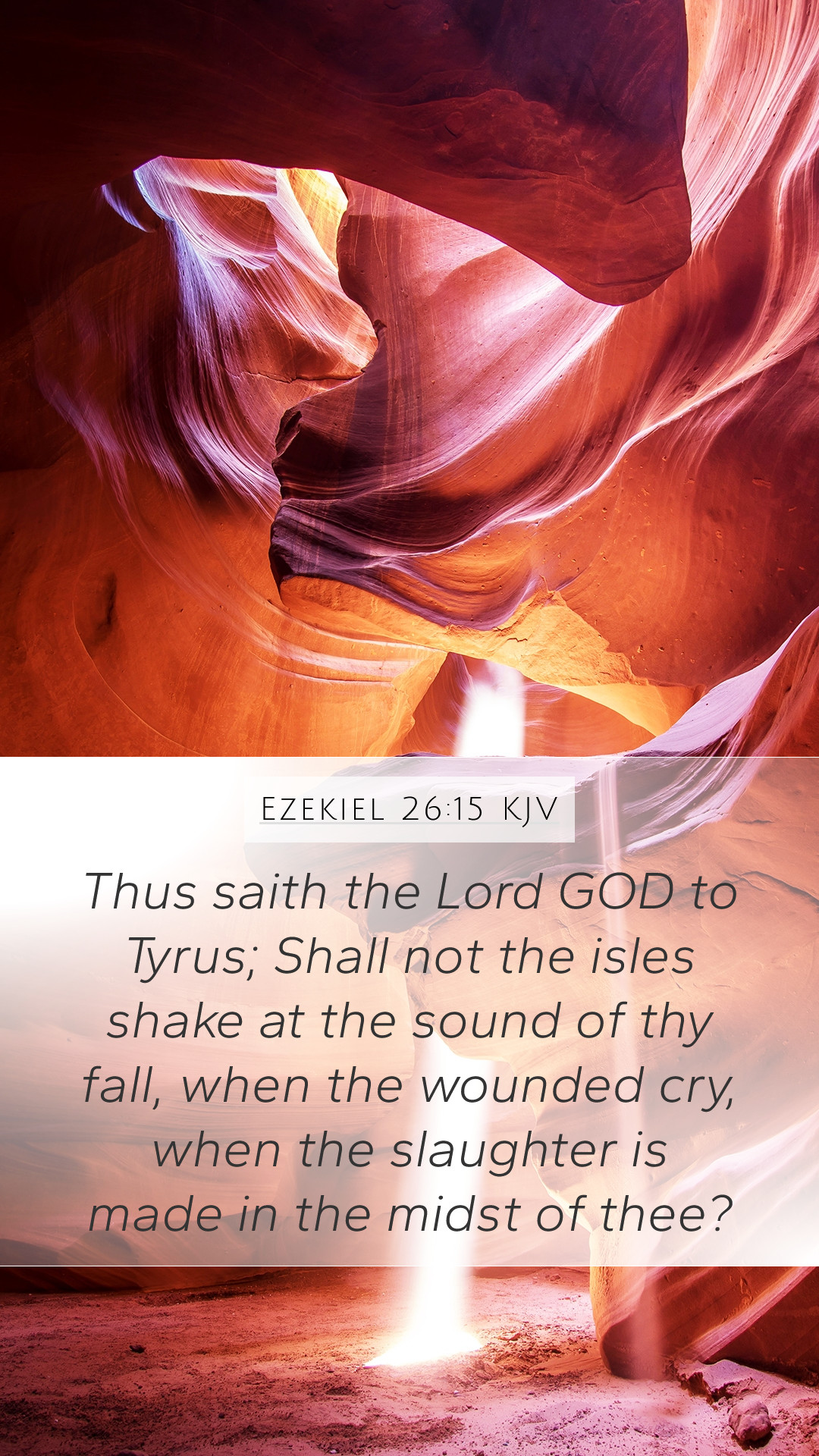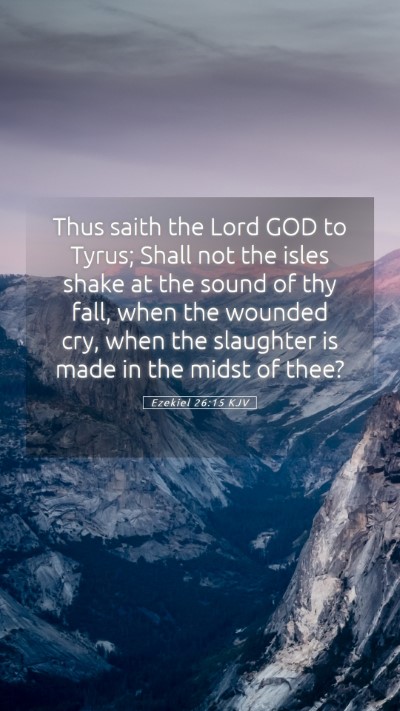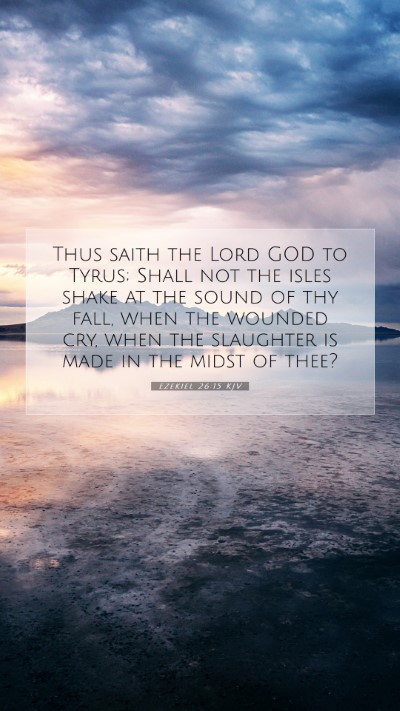Bible Verse Meaning of Ezekiel 26:15
Ezekiel 26:15 states, "What about the city of Tyre? Will not the coastlands tremble at the sound of your fall, when the wounded groan, when the slaughter occurs in your midst?" In understanding this verse, we can extract insights regarding its prophetic implications, the context of Tyre's destruction, and the broader message of judgment.
Contextual Analysis
The prophecy concerning Tyre is a significant part of Ezekiel’s messages against foreign nations. Tyre, a wealthy and powerful Phoenician city known for its trade, faced impending destruction due to its arrogance and idolatry. This prophecy illustrates God's sovereign control over nations and the consequences of sin.
Interpretation Insights
-
Matthew Henry: Henry emphasizes the utter devastation that Tyre would face and the reverberating effects of its fall. He notes that the destruction would be felt not just within Tyre itself but in surrounding regions, indicating the city's significant influence and the resulting fear of its allies.
-
Albert Barnes: Barnes focuses on the metaphor of the "coastlands" trembling at Tyre's fall, interpreting it as an indication of the widespread fear among nearby nations. He elaborates on how Tyre's superior military and economic power would bring anxiety to smaller nations that depended on it.
-
Adam Clarke: Clarke views this verse as a reminder of the consequences of national pride and sin, asserting that Tyre, having indulged in unfair trade practices and idolatry, would face divine judgment, leading to a broader acknowledgment of God's power among nations.
Key Themes
The analysis reveals several key themes:
- Divine Judgment: This verse highlights the certainty of God’s judgment against nations that oppose Him and indulge in immorality.
- Cultural Impact: The mention of the “coastlands” shows the interconnectedness of nations; Tyre's downfall would lead to widespread panic, signifying its cultural and economic importance.
- Prophetic Revelation: Ezekiel's prophecy serves as a warning as well as a revelation of God’s ultimate control over world affairs, emphasizing His power over both Israel and foreign nations.
Application for Today
In applying the meaning of this verse to modern life, believers can take away the significance of recognizing God's sovereignty over all aspects of life and history. The fall of mighty nations serves as a cautionary tale against pride and disobedience to God. It encourages believers to remain steadfast in faith and humble before the Almighty.
Related Biblical Cross References
- Isaiah 23:1-18: A similar prophecy regarding the city of Tyre, emphasizing its fate.
- Ezekiel 27: A lament over Tyre’s fall that discusses its trade power and the repercussions on the nations.
- Jeremiah 25:22: Mention of foreign nations, including Tyre, and God’s judgment upon them.
Conclusion
In summary, Ezekiel 26:15 serves as a powerful reminder of God's judgment and the effects of sin on nations. By understanding this scripture through the lenses of respected commentaries, we discover rich insights into its biblical significance and application for today's world. This verse encourages deep reflection on the nature of divine justice and humanity's place in the larger tapestry of God's plan.
Explore Further
For those seeking further Bible study insights or engaging in online Bible study, utilizing tools and resources to explore the historical context and application of such passages can aid in understanding Scripture more deeply. Consider participating in Bible study groups to share interpretations and insights.


